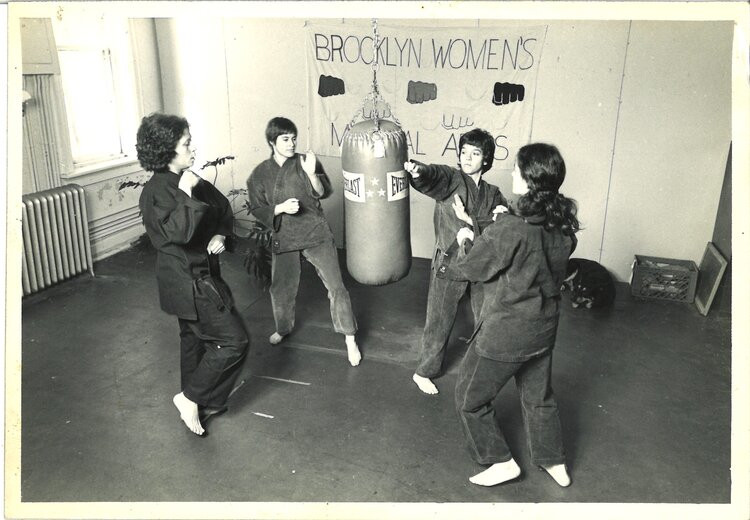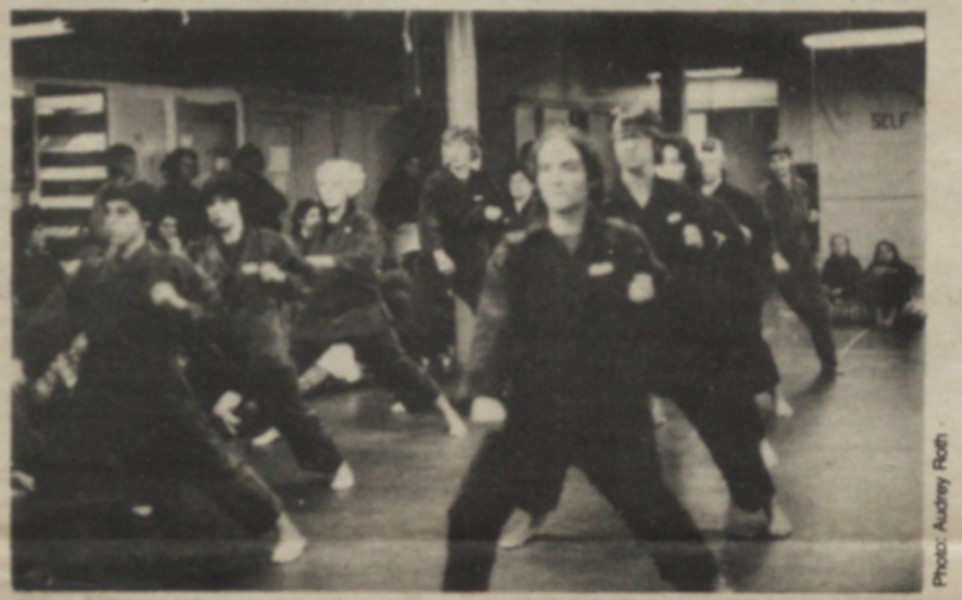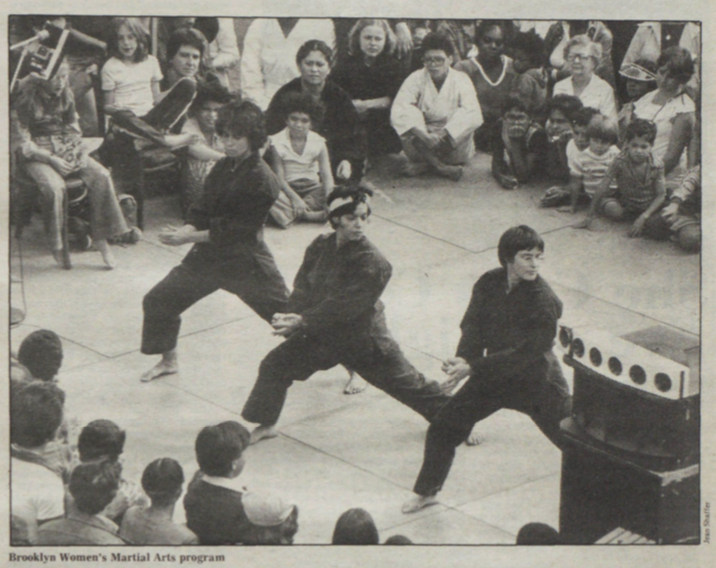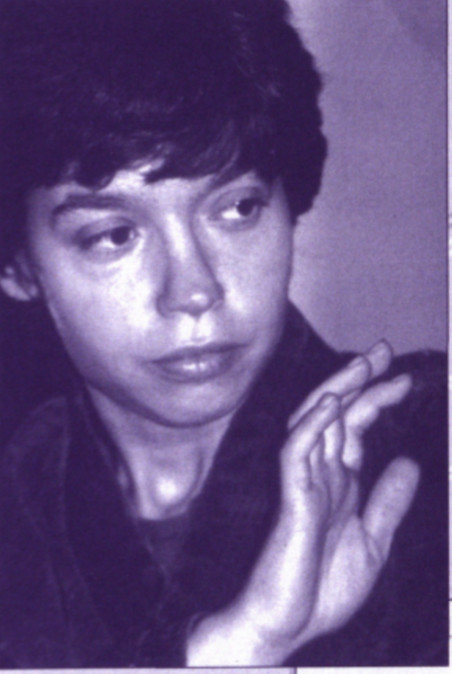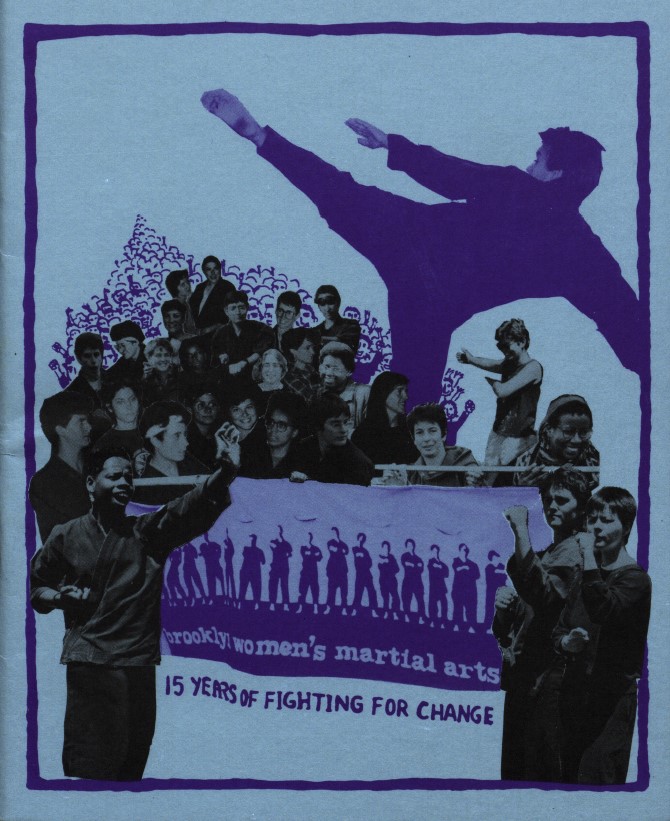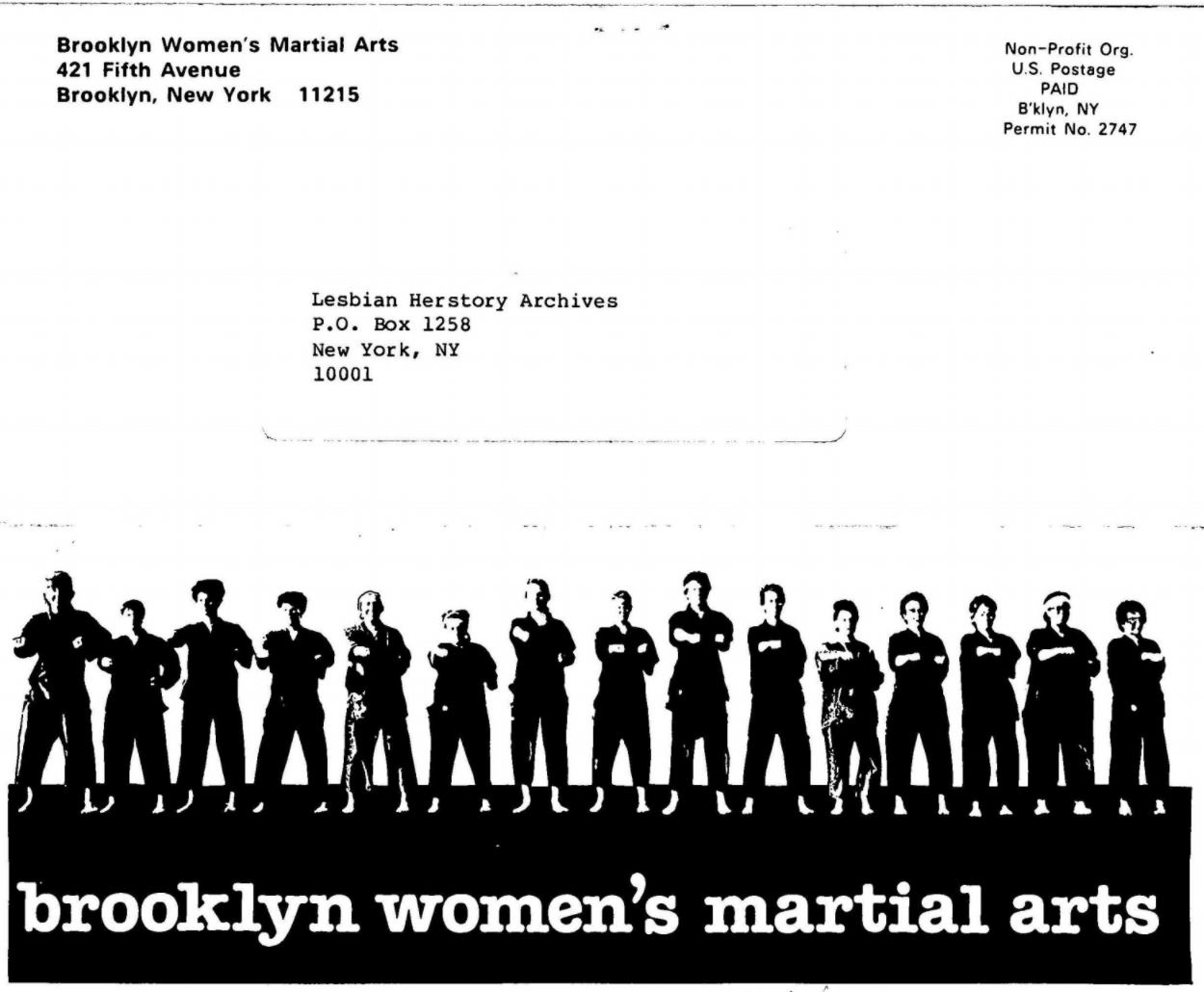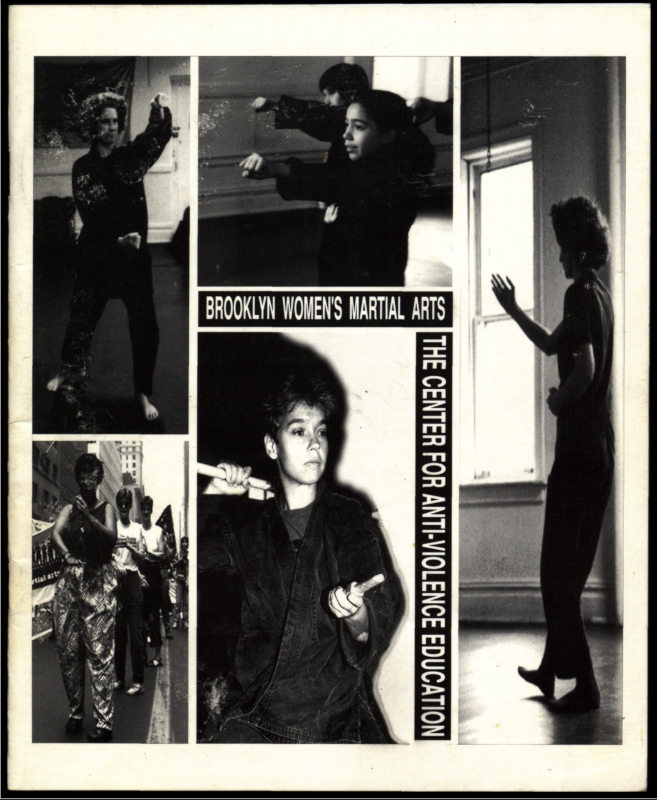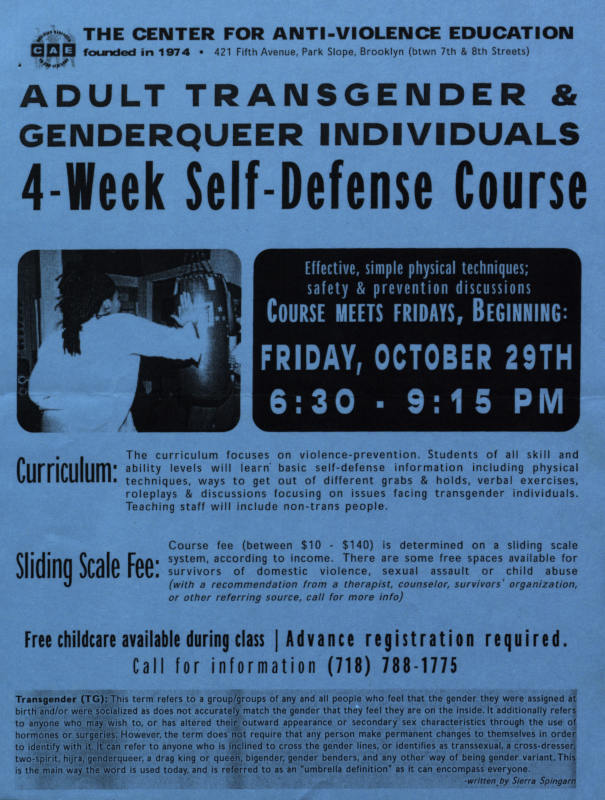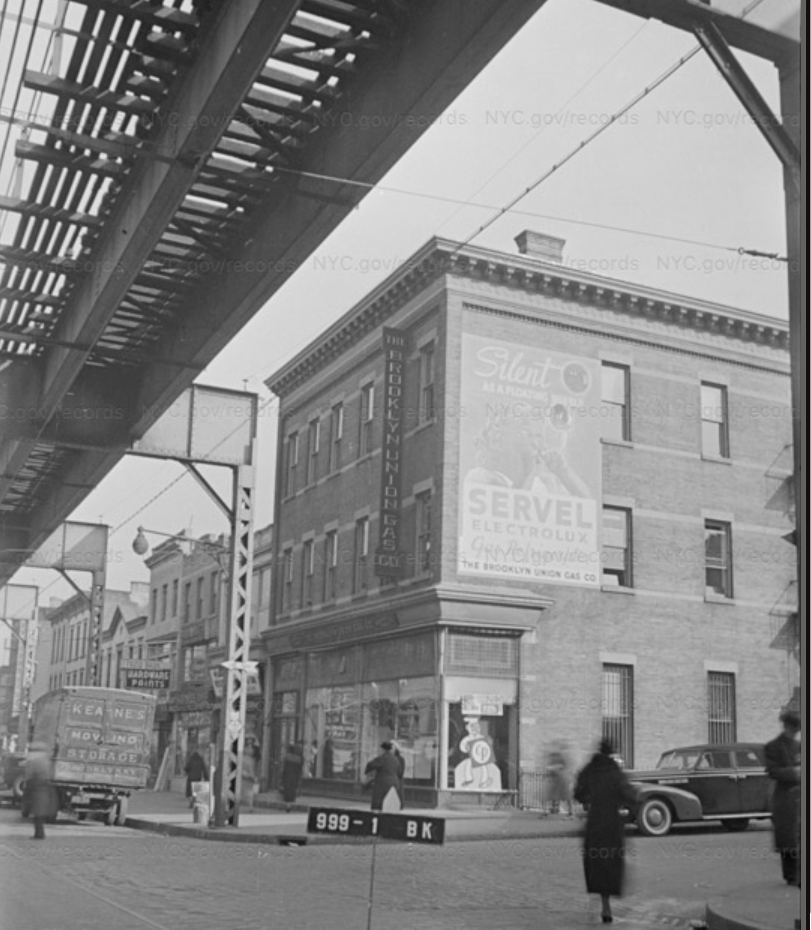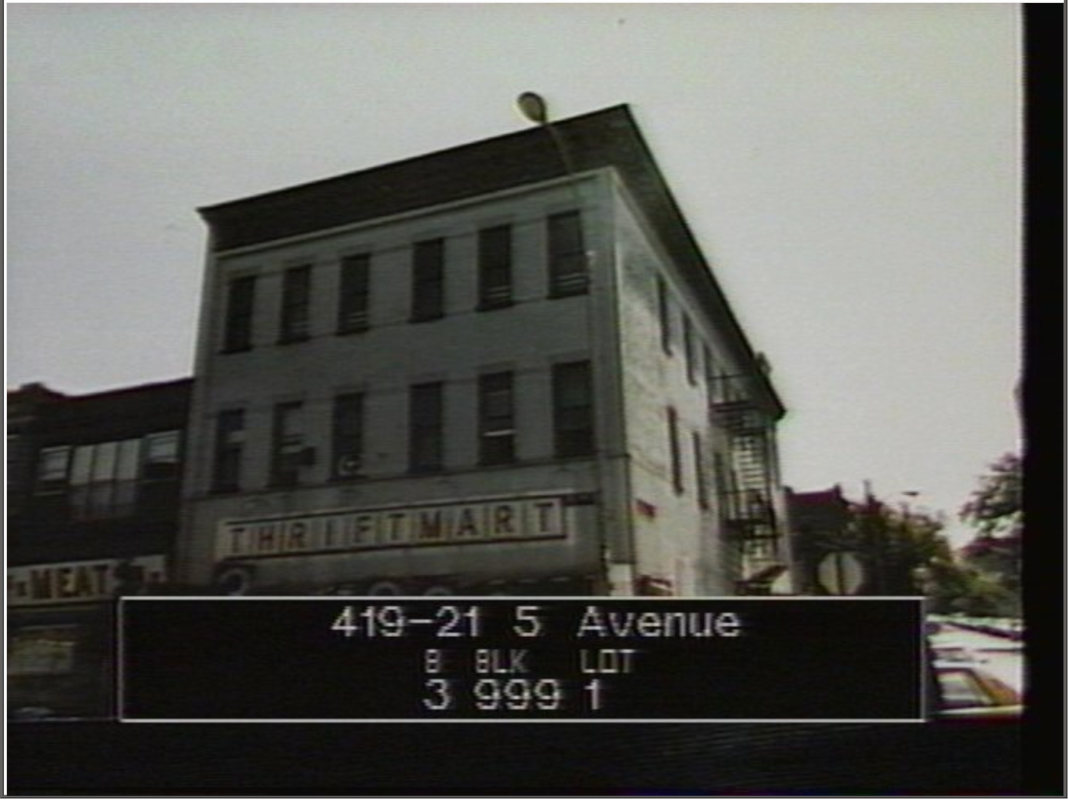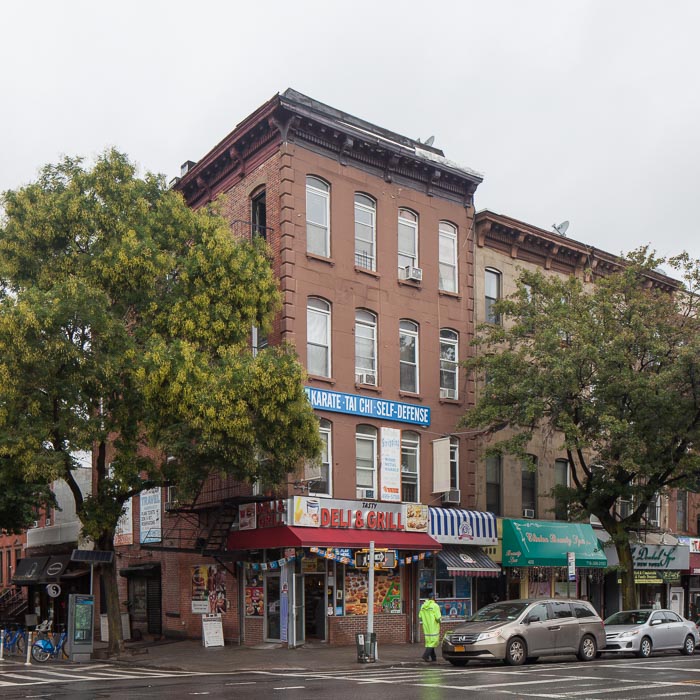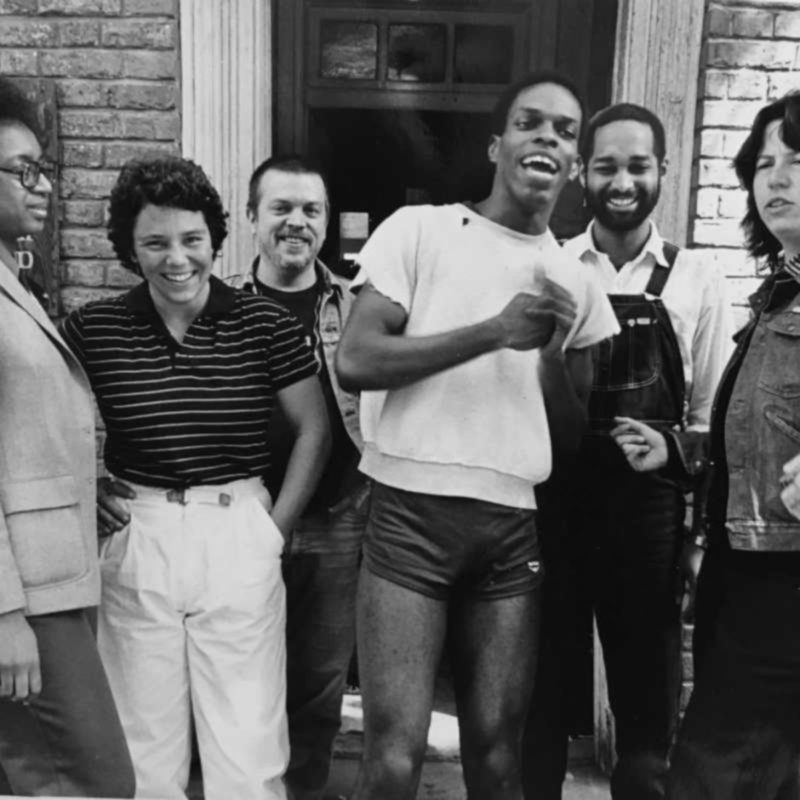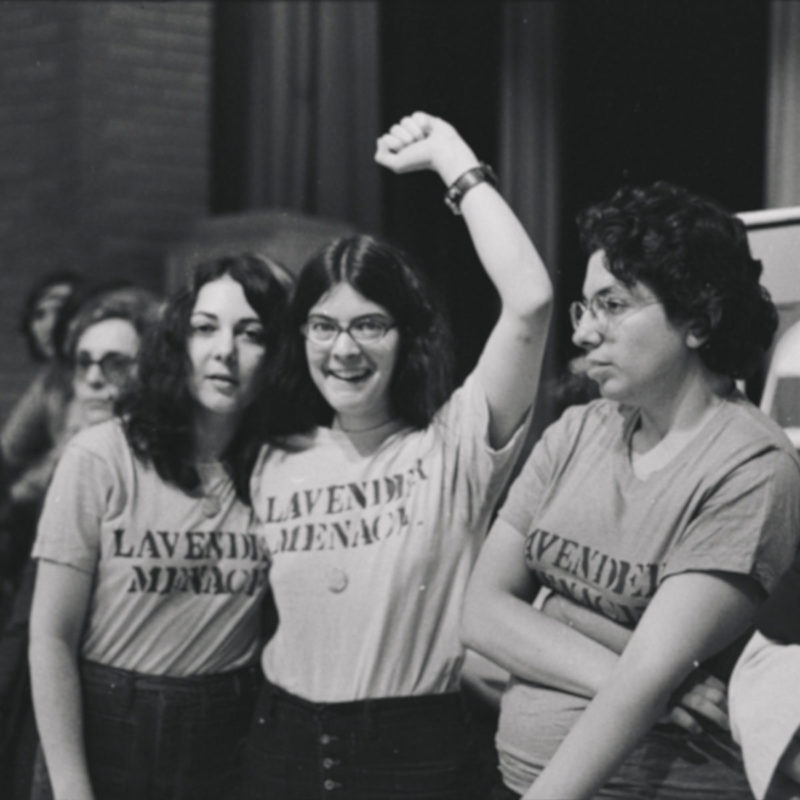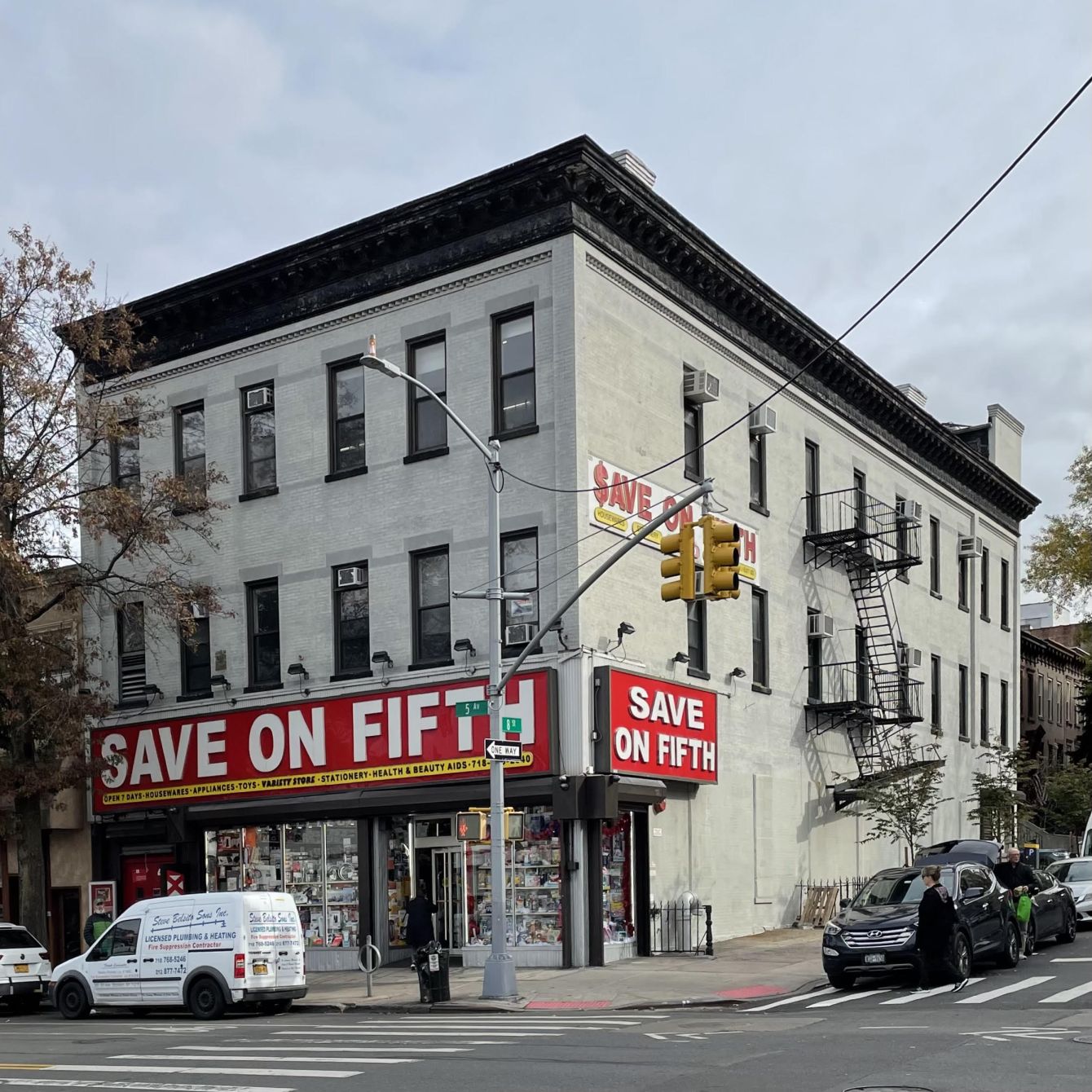
Brooklyn Women’s Martial Arts
this was the original, permanent location of BWMA before moving to its current location at 327 7th Street in the early 2000s (it was renamed the Center for Anti-Violence Education in 1990)
overview
Brooklyn Women’s Martial Arts (BWMA), renamed the Center for Anti-Violence Education in 1990, was founded in 1974 to teach self-defense skills and karate to women and girls (including lesbians and bisexuals) as part of the feminist anti-violence movement.
Located on the second floor of 421 Fifth Avenue in Park Slope from 1979 until moving to its present location in the early 2000s, the organization became the first in New York City to teach self-defense to transgender individuals and the first in the nation to do so for people living with HIV/AIDS.
History
Since 1974, Brooklyn Women’s Martial Arts (BWMA), now the Center for Anti-Violence Education, has provided affordable self-defense training in a non-competitive environment to empower women and girls to build leadership skills, heal from abuse, and prevent violence. Martial arts teachers Annie Ellman and Nadia Telsey founded BWMA to make karate and self-defense more accessible to women who traditionally had been excluded from dojos (karate studios). Ellman and Telsey held workshops and classes in rental spaces, Ellman’s living room, and at political rallies before moving to the second floor of 421 Fifth Avenue in Park Slope in 1979.
BWMA was part of the larger feminist anti-violence movement of the late 1960s and early 1970s, opening alongside rape crisis centers, battered women’s shelters, and other spaces that taught women self-defense (e.g. Women’s Liberation Center, in Manhattan). This movement explored “personal oppressions,” such as rape and domestic violence, as political issues. BWMA held programming catered to the needs of survivors of gender-based violence and disabled women. As an activist and anti-racist organization, BWMA also participated in campaigns bringing attention to police brutality against Latina women and supported Black women prosecuted for defending themselves against attackers in the 1970s. By the 1980s, BWMA was home to a Women of Color Group and identified as a multicultural organization.
Within a clearly articulated political context, BWMA makes martial arts training available to those who have traditionally been the most powerless in our society: poor women, women with children, women of color, teenage girls, lesbians, older people and non-athletic women.
Lesbians always were welcome at BWMA; however, by the early 1980s, BWMA taught workshops specifically targeted at and taught by lesbians. Staff member Joan Byron led a workshop in 1983 that dealt with what she called “baseball-bat defense” since “thugs often use[d] clubs in attacks on homosexuals” and gang violence against same sex couples. BWMA also received substantial funding from the Astraea National Lesbian Action Foundation.
Programs to aid LGBT individuals further expanded in the 1980s. BWMA became the first organization in New York City to train transgender people in self-defense and, by the 1990s, transgender individuals were welcomed at all BWMA programming. Around the same time, BWMA partnered with the NYC Gay and Lesbian Anti-Violence Project (now the Anti-Violence Project; AVP) and became the first organization in the United States to teach self-defense to people living with HIV/AIDS. In 1988, BWMA began hosting workshops for lesbians and gay men at the LGBT Community Center in Manhattan in response to the rise of attacks against homosexuals.
Largely as a result of moving beyond training cisgender women, BWMA changed its name to the Center for Anti-Violence Education (CAE) in 1990. BWMA/CAE continued to operate at 421 Fifth Avenue into the 2000s. Today, BWMA/CAE remains in Park Slope, but is based out of 327 7th Street. An offshoot of BWMA/CAE, Brooklyn Goju-Martial Arts for Peace, Strength and Justice, also offers self-defense training to cisgender and trans women to “continue the legacy of BWMA by upholding its feminist, anti-racist, and anti-heterosexist core principles.”
Entry by Emily Kahn, project consultant (November 2020).
NOTE: Names above in bold indicate LGBT people.
Building Information
- Architect or Builder: unknown
- Year Built: c. 1900
Sources
Brooklyn Women’s Martial Arts (Center for Anti-Violence Education; BWMA), October 18, 1988-August 15, 2007, Lesbian Herstory Archives: Organizational Files: 0226.
“History,” Center for Anti-Violence Education, accessed July 2020, http://bitly.ws/9NKk.
Kimberly Miller, “Fighter,” Radical Chick 1, no. 3 (November-December 1992), 27.
Laura Flanders, “Astraea Fund Takes Risks,” New Directions for Women, May-June 1988, 3. [source of pull quote]
Lucy Grugett, “Uncivil Defense,” Womanews 4, no. 10 (1983), 4.
Martial Arts: Fighting Woman News, 1975-1998, Lesbian Herstory Archives: Subject Files: Part 4: International Women’s Day-Peace Camps, Folder No. 08620.
Peg Byron, “When the Erotic is Radical,” Womanews 1, no. 3 (Feburary 1980), 3.
Thu-Huong Ha, “We can chip away at rape culture by teaching girls emotional self-defense,” Quartz, June 14, 2018, accessed July 2020, http://bitly.ws/9NKs.
Whitney Walker, “The New Femme Fatale She’s Fighting Crime the Old-Fashioned Way–With Stiff Kicks & Jabs,” New York Daily News, November 26, 1995, accessed September 2020, http://bitly.ws/9NKq.
“Who We Are,” Brooklyn Goju-Martial Arts for Peace, Strength and Justice, accessed July 2020, http://bitly.ws/9NKm.
Do you have more information about this site?
This project is enriched by your participation! Do you have your own images of this site? Or a story to share? Would you like to suggest a different historic site?
